Ensuring equal opportunities and participation for everyone, especially for persons with disabilities, requires innovative strategies. In recent years, Community-Based Inclusive Development (CBID) has emerged as a leading approach for its effectiveness in ensuring people with disabilities are respected and included in their communities on an equal basis, have access to inclusive systems and services, and live a self-determined life. CBID initiatives target critical areas such as health, education, livelihood, and, in vulnerable zones, disaster preparedness and resilience. They do so by transforming existing systems to be more inclusive and deliver better quality services and by promoting the voice and participation of persons with disabilities and their families in all aspects of community life.
In this article, we explore the transformative impact of CBM India's CBID programs- a long-standing pillar of their development strategy- with a specific focus on their Atmanirbhar Shamoodhay program in the Dehradun district of Uttarakhand.
CBM India Trust is a leading non-profit organization that has been working across India for over 55 years to improve the well-being of persons with disabilities and marginalized communities. Their Atmanirbhar Shamoodhay programis run in collaboration with their grassroots partner Sanjeevani, an NGO working in Uttarakhand and Himachal Pradesh. Through a real-life example, we highlight how CBID fosters equity, self-empowerment, and community resilience.
Inclusive Development in Action
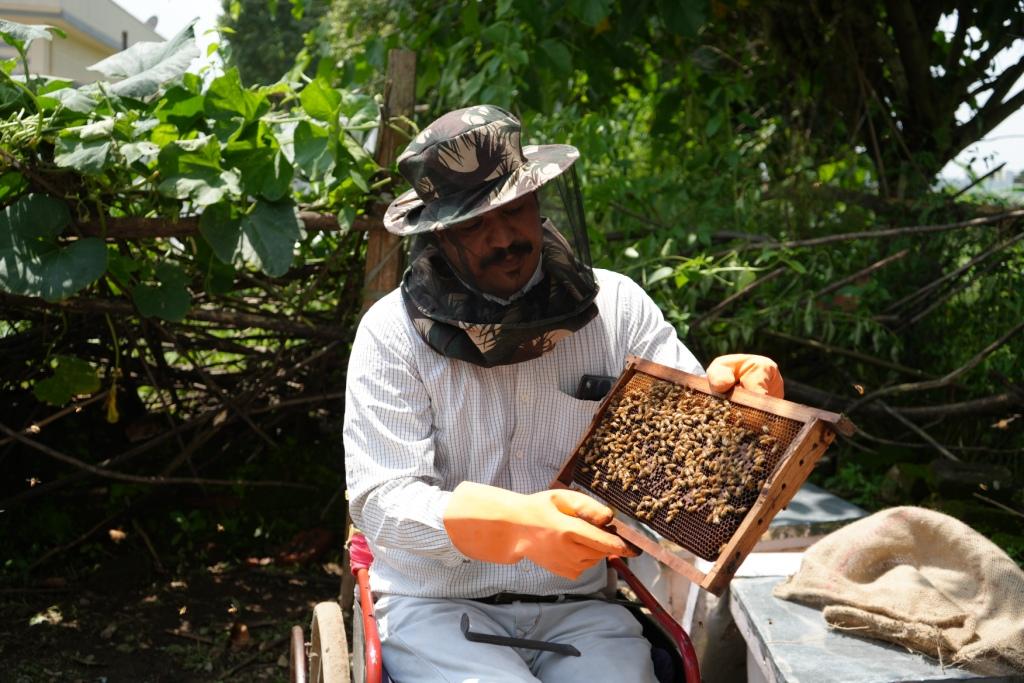 Nestled in the verdant landscapes of Uttarakhand, the village of Fulseni is the backdrop tothe story of one of its residents, who offers us fresh perspectives on inclusive development. After a spinal injury altered his life, Ashish found renewed purpose through the Atmanirbhar Shamoodhay program, crafting a thriving beekeeping business, and supporting others along the way.
Nestled in the verdant landscapes of Uttarakhand, the village of Fulseni is the backdrop tothe story of one of its residents, who offers us fresh perspectives on inclusive development. After a spinal injury altered his life, Ashish found renewed purpose through the Atmanirbhar Shamoodhay program, crafting a thriving beekeeping business, and supporting others along the way.
Following the injury, Ashish faced a year-long confinement to his bed, grappling with the physical and emotional turmoil. The prolonged medical treatment resulted in the loss of his once cherished job, making his situation increasingly difficult.
The arrival of the Atmanirbhar Shamoodhay intervention in his village marked a significant shift in his life. The program staff introduced Ashish to the various government schemes available for persons with disabilities. Inspired to act, he enrolled for disability pension benefits and obtained his Unique ID for Persons with Disabilities (UDID) card.
Also central to Ashish's transformation was his participation in a comprehensive beekeeping training program organized by the Khadi and Village Industries Commission (KVIC) as part of CBM India’sprogram. Over five intensive days of training, he honed the skills essential to become a proficient beekeeper and to master the production of honey, wax, propolis, and more.
Starting with just four bee boxes provided through the initiative, Ashish quickly grew his business to nine hives in less than a year. His expertise led him to become a master trainer under the Atmanirbhar Shamoodhay program, and he now shares his knowledge with aspiring beekeepers in his community.
Beyond his own achievements, Ashish is also an active member of the Organization of Persons with Disabilities founded through the program. In this role, he leverages his awareness to support other persons with disabilities in accessing government schemes and obtaining their UDID card.
Looking ahead, Ashish has plans to join the disability-inclusive producers' organization established as part of the program. He believes this cooperative society will offer him better prices for his products and relieve him of the hassle of transporting his yield, as they collect honey and other products directly from his home. Moreover, Ashish values the profit-sharing aspect of the cooperative, viewing it as a reliable way to ensure fair returns and financial security for himself and his fellow beekeepers.
Ashish's story underscores the broader impact of the Atmanirbhar Shamoodhay program. With over 2000 individuals, including 300 persons with disabilities, the initiative goes beyond simply providing skills training and development through livelihood activities such as beekeeping, mushroom cultivation, and farming. With its holistic approach, it also facilitates community support, inclusion, and self-reliance.
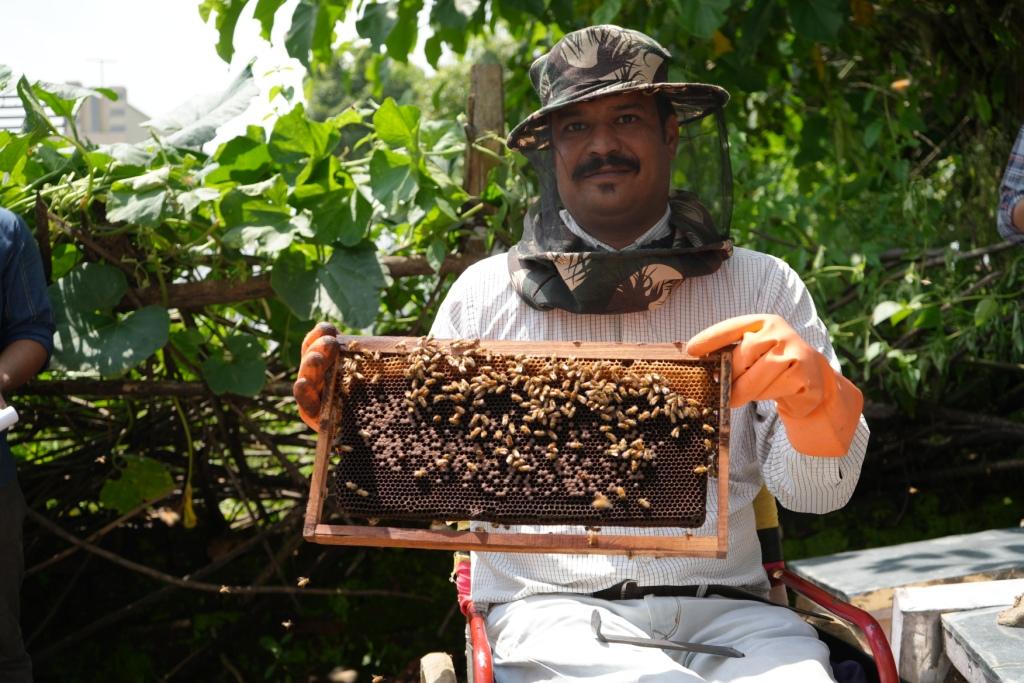
Empowering Individuals and Communities Through CBID
At the core of CBM India's strategy lies the philosophy of Community-Based Inclusive Development. This approach goes beyond individual interventions and immediate benefits, aiming to bring about change at the community level and tackling significant barriers persons with disabilities face in accessing quality services and participating fully in community life.
By working alongside and strengthening local groups and institutions, CBM India’s initiatives ensure that persons with disabilities are not only included but actively participate in decisions that will impact their future. This builds more inclusive, responsive, and accountable communities where everyone's voice is heard and valued.
Through initiatives like Atmanirbhar Shamoodhay, CBM India reaffirms its commitment to leaving no one behind, in line with the promise of the 2030 Agenda for Sustainable Development and its Sustainable Development Goals. As CBID's transformative potential continues to be realized, there is a growing opportunity to scale up these efforts and advance the well-being of entire communities, ensuring persons with disabilities are active participants in this journey.
Disclaimer: The information provided in the above article is courtesy of CBM India.




 Nestled in the verdant landscapes of Uttarakhand, the village of Fulseni is the backdrop tothe story of one of its residents, who offers us fresh perspectives on inclusive development. After a spinal injury altered his life, Ashish found renewed purpose through the Atmanirbhar Shamoodhay program, crafting a thriving beekeeping business, and supporting others along the way.
Nestled in the verdant landscapes of Uttarakhand, the village of Fulseni is the backdrop tothe story of one of its residents, who offers us fresh perspectives on inclusive development. After a spinal injury altered his life, Ashish found renewed purpose through the Atmanirbhar Shamoodhay program, crafting a thriving beekeeping business, and supporting others along the way.
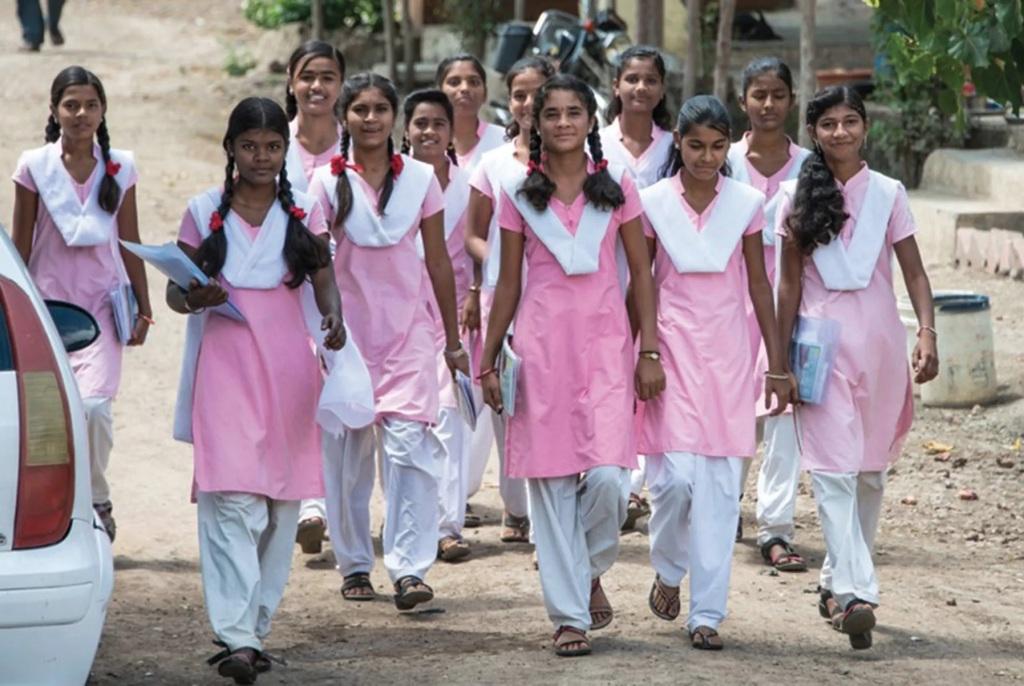


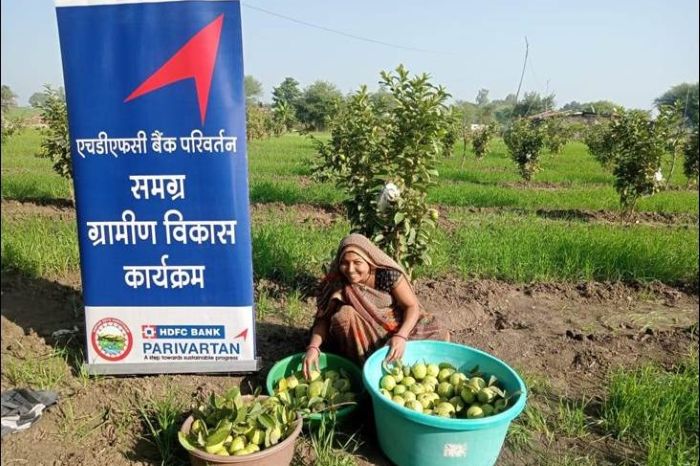
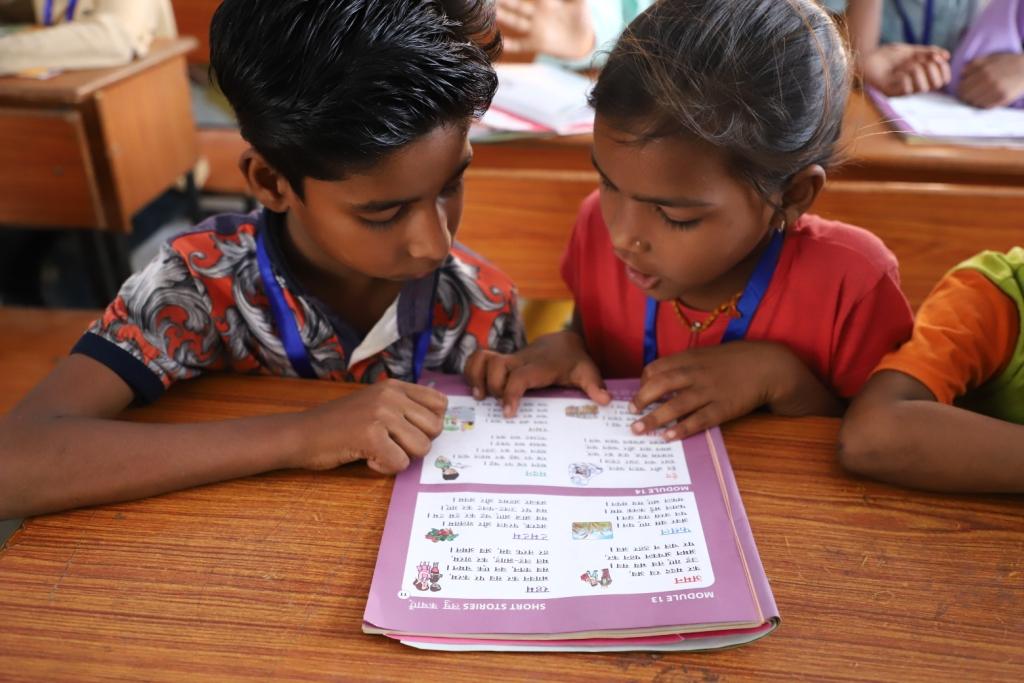
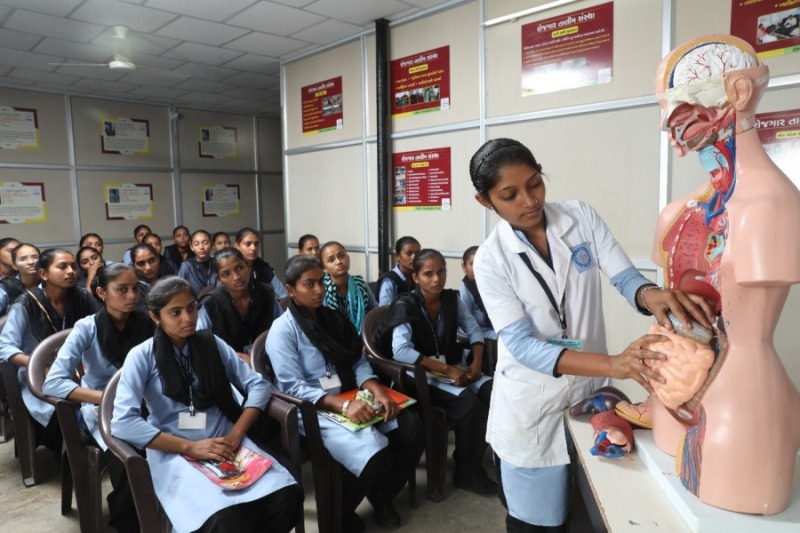








.jpg)



